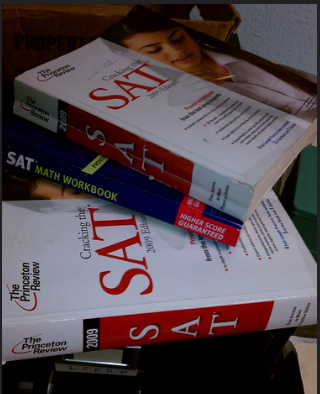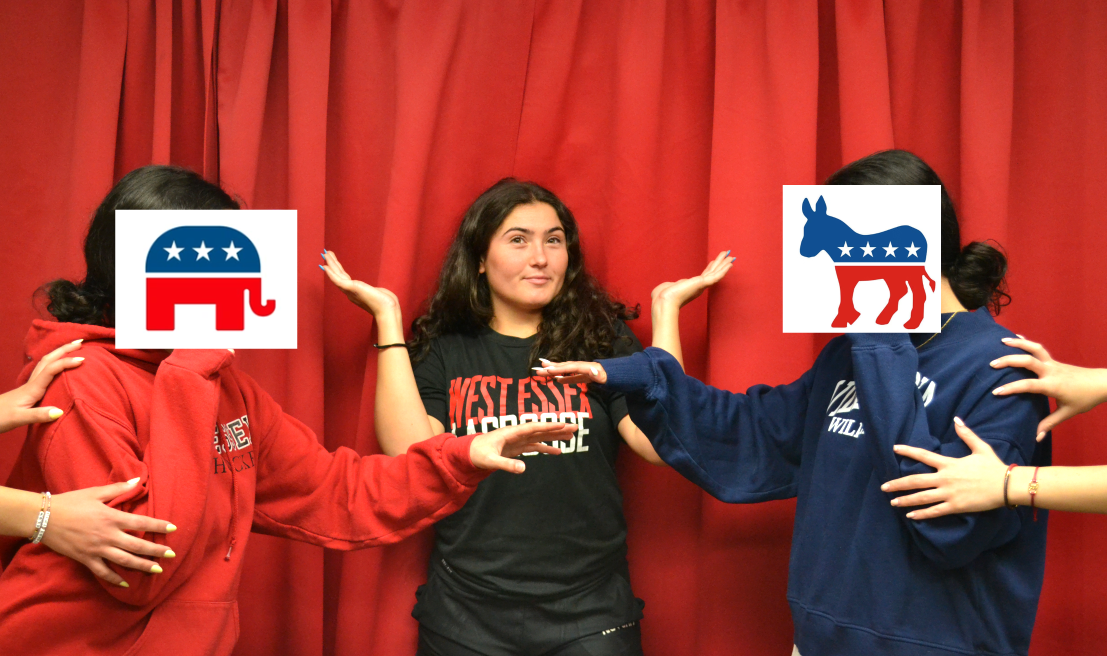
Junior year is notorious for being the most academically challenging grade of high school. Students frantically try to pack in as many AP classes as possible, maintain solid grades and prepare for the infamous SAT or ACT, all while attempting to preserve their social life outside of school—it’s quite debilitating, to say the least. Yet, some students are actively choosing to make this already strenuous experience even more difficult with the constant barrage of competitive college-talk, which feels utterly impossible to escape.
As if comparing test grades wasn’t draining enough, students now feel the need to boast about every little piece of information pertaining to their college prep. Everywhere juniors turn, people are obsessively comparing standardized test scores, which tutors they’ve hired, how much their tutors cost, what extracurriculars they are doing, which colleges they’re looking at—the list goes on and on. It’s like being stuck in a never-ending cycle of competition where everyone is trying to outdo each other in the game of who can be the most prepared, the most impressive and the most “college-ready.”
Obviously, conversations about college are unavoidable and sometimes necessary because, at the end of the day, it is a big part of our lives right now. However, there is no need for the discussions to be as relentless and extreme as they are now. Not only is it annoying when students constantly bring up the topic and ask personal questions, it’s completely exhausting. Some people do this in an attempt to flex and seek validation, while others are looking to figure out their classmates’ business so that they can get ahead before college application season. Whatever their reasoning is for invading their peers’ privacy, the conversation causes a deep spiral as students start to over-analyze every aspect of their college prep, rethink their academic career and ultimately end up feeling like they’re not doing enough. This obsessive behavior fosters a toxic school environment filled with self-doubt and vicious competition, when students should realistically be promoting a safe space that welcomes support and encouragement between peers.
Aside from the fact that the conversation is draining, the information being shared is simply not appropriate. Students need to realize that personal details like their standardized test scores or GPA only concern themselves and do not need to be shared with people at school. Discussion like this can quickly make others feel uncomfortable or inadequate, especially if they have not had access to the same resources. Preparing for college is ultimately an individualized process that looks different for everyone, so continuously using it as a catalyst for casual conversation is unnecessary.
It’s also incredibly frustrating when fellow students act as though they have their entire lives figured out, from which college they’re attending to their major and future career. When people constantly discuss their future plans in such a boastful way, it can create an unrealistic standard—one implying that if you don’t have the upcoming years mapped out perfectly, then you’re somehow falling behind. In reality, many people are still figuring things out, which is completely normal considering we’re only teenagers.
The reality is that your peers are the only people who truly understand the immense stress of college, and high school students should lean on their friends rather than pushing them away. So, as the second half of the year approaches and stress levels soar, juniors must collectively spend time focusing on personal growth and goals, rather than putting so much energy towards senseless competition.
Photo Credits: “SAT books” by Yongho Kim is licensed under CC BY-SA 2.0




